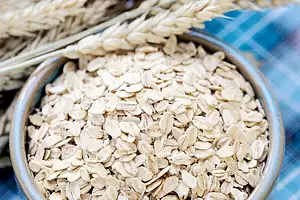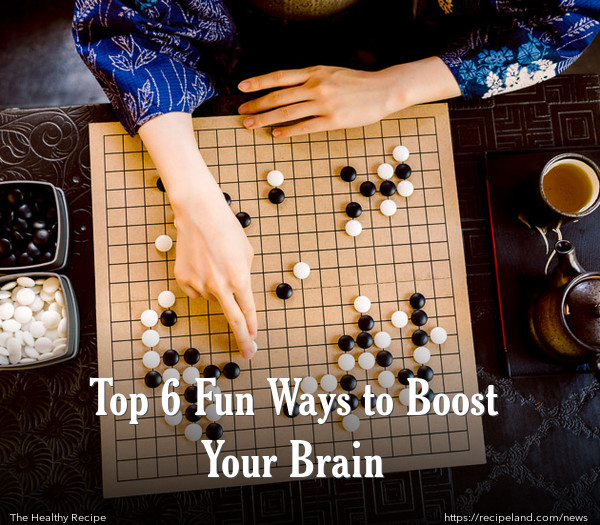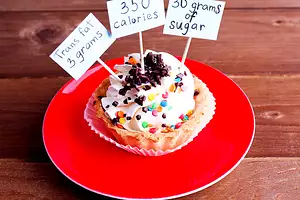It’s easy to know what to do to work on improving your body, but do you know what to do to improve your brain function? There are plenty of activities that you can add to your life that will help improve your brain function. Activities that help you to slow down and pay attention to what you are doing can improve your brain function, especially when the activities are unfamiliar.
A recent study showed that older adult who participated in certain leisure activities that were found to be stimulating, including reading, board games, learning a musical instrument, and learning to dance, found that these adults were less likely to develop dementia over a 20 year period, as compared with similar adults who did not participate in such activities.
Experts are not in agreement regarding how these intellectual challenges actually help brain function, but agree that intellectual hobbies help to increase the cognitive reserves in the brain. This is like saying you are building up an account of knowledge.
For example, if you examined twin brothers at the age of 40, one who resolves to learn one new vocabulary word per day and one who watches only reality television, you would find that after several years there would be significant difference in the actual construction of the brain. Using an fMRI scanner, you would likely find the same amount of plaques and tangles that come with the normal aging process but the twin who learned words every day would show fewer signs of the aging process.
For example, when you could not recall the word “beautiful,” you would be able to come up with several substitutions, like “pretty,” “attractive,” “majestic,” “spectacular,” etc. The other twin would be limited, and show more problems with word finding. Basically, the less you know, the more obvious it becomes when you start to lose it.
Cognitive reserve is only one possible explanation. Intellectual challenges promote the growth of new brain cells and solidify connections. The hippocampus is one area of the brain that can actually continue to grow new neutrons, even during the aging process. Regardless of the reason, you should strive to maintain and improve your brain function as much as you can, to reduce your chances of developing Alzheimer’s disease or dementia.
Here is a list of 6 great activities that you can try:
1. Enroll in acting classes.
When you are acting, you are generally required to memorize lines and moves. A recent study examined 122 senior citizens who participated in acting lessons twice per week for four weeks. The participants improved in their ability to memorize and recall lists of words, recall digits, and remember and retell short stories, as compared with adults who did not participate in the acting classes.
2. Tutor someone else.
A recent study showed that women who volunteered 15 hours per week as senior citizen tutors for children with developing literacy skills showed improved brain function and increased activity in areas of the brain responsible for attention.
3. Play board games and complete puzzles.
Older adults who enjoy board games and puzzles as leisure activities demonstrated better retention of brain matter and memory function than those who did not play games, according to a study that examined over 300 people. These results were consistent even for those adults not expected to be at risk for Alzheimer’s based on family history. Checkers, crosswords, and card games were all found to be helpful.
4. Take music lessons.
When you learn to play music, it can improve many cognitive functions, from attention to memory to motor planning skills. It will also improve your auditory and visual skills. Studies have shown that playing a musical instrument can stave off cognitive decline as we age.
A study conducted at Emory University found that older adults with more than 10 years of musical experience performed better on all cognitive functions assessed. Singing can also help, so if you cannot play an instrument, consider joining a choir. It’s never too late to start.
5. Explore your artistic side.
When you are performing artistic skills, you are focusing your attention. You must examine the thing you are drawing closely and make many calculations about perspective, size, shapes, etc., as well as deciding things like composition, colour, shading, placement, etc. Studies have shown that senior citizens who engage in artistic pursuits showed less cognitive impairment than their non-creative counterparts.
A recent study conducted by the Mayo Clinic examined more than 250 people in their 80s, and found that those who engaged in creative or crafting activities, like woodworking, pottery, ceramics, quilting, drawing, sculpture or more maintained their cognitive function by up to 55% more than non-artistic elders. Don’t worry if you don’t have any natural talent, simply engaging your brain in these activities helps, and it doesn’t matter if you create a masterpiece.
6. Learn to speak a new language.
Bilingual older adults are able to maintain better cognitive function. For those at risk, adults who speak more than one language may develop Alzheimer’s nearly 5 years after those who only speak one language. And, while learning one as an adult can be difficult, the pursuit of the new language will stimulate growth and connections within your brain.
Boost your brain function, starting today, by adding these activities to your life. You will not only have more fun, but you will be protecting your cognitive function as you age.










Comments